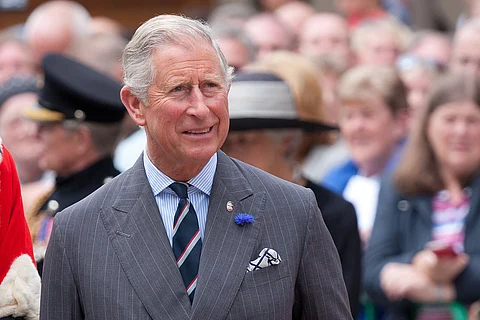

For all his talk of annexing Canada as the 51st state, there’s only one person US president Donald Trump has failed to ‘consult’ — and the only one that (ceremonially, at least) matters — King Charles III.
Trump and Charles reportedly share a bromance dating back to his first term in office. In her recent memoir, First Lady Melania insisted the two men remained ‘pen pals’, exchanging correspondence up until her husband’s election last November.
And yet, Trump has failed to consult the one person who has the final — albeit, ceremonial — say in the matter who is keeping a stiff upper lip as the debate rages.
That’s because Canada, like India, is a wholly separate throne from the United Kingdom and other Commonwealth realms. And Charles, like his mother before him, is the legal and constitutional head of it.
At the end of the day, it’s Charles’ decision, and his alone, to make on whether he allows his personal Dominion to be surrendered to a mere mortal — and a commoner at that — to assume all his royal titles and epithets bestowed by God under his Divine right to Rule.
Trump’s comments, which have escalated from what Canadian officials initially dismissed as a joke, include calling Canada’s border an “artificially drawn line” and suggesting that statehood would bring Canadians “lower taxes, better care, and more security.”
He has tied the suggestion to a proposed 25% tariff on Canadian goods, hinting that the tariff could be avoided if Canada only gave up its foolish aspirations of sovereignty and joined the Lower 48.
Prime Minister Justin Trudeau has firmly rejected the idea, stating, “there’s not a snowball’s chance in hell,” of it happening. Opposition leaders, including Conservative Leader Pierre Poilievre and NDP Leader Jagmeet Singh, have also denounced Trump’s remarks, with Singh warning there would be “a price to pay” for picking a fight with Canada.
Yet, King Charles has not uttered a word in public, or in private. A spokesperson for Buckingham Palace stated that Trump’s remarks are “not something we would comment on.”
Philippe Lagasse, a constitutional monarchy expert at Carleton University, told The Canadian Press that it would be “unprecedented and inappropriate” for the King to involve himself in such political matters. “He won’t comment on issues facing Canada of his own accord, nor should we want him to do so,” Lagasse said. “If the King were to respond, it could set a dangerous precedent of involving the Crown in government matters.”
Governor General, Mary Simon, who represents the King in Canada, has also refrained from commenting, emphasizing her non-partisan role.
While Canada’s leaders continue to reject Trump’s annexation suggestion, the UK has offered a statement affirming Canada’s sovereignty.
A spokesperson for the British Foreign, Commonwealth and Development Office said: “Canada is an independent, sovereign nation, a member of the Commonwealth, the Five Eyes intelligence-sharing partnership and a NATO ally.”
Trump, who has long expressed admiration for the British monarchy, recently received a congratulatory note from King Charles on his second inauguration. While the King has maintained a friendly relationship with US presidents, his silence on Trump’s remarks reflects what Royal observers say is commitment to remaining above the fray of political controversies.
That said, Charles does hold outsized influence over the political leadership in both the US and Canada -- even though his mother, Queen Elizabeth II is said to have called the US president "rude."
He is rumoured to be planning a tour of the US in honour of the 250th Anniversary of its independence in 2026, which is conveniently timed with the World Cup being jointly hosted with Canada.
It could prove to be the prefect opportunity to inject a little royal purple into the debate.
While Charles is unlikely to formally weigh in on the issue, his role as Canada’s head of state serves as a symbolic anchor for the country’s independence, even as its closest ally entertains the notion of swallowing it whole.
